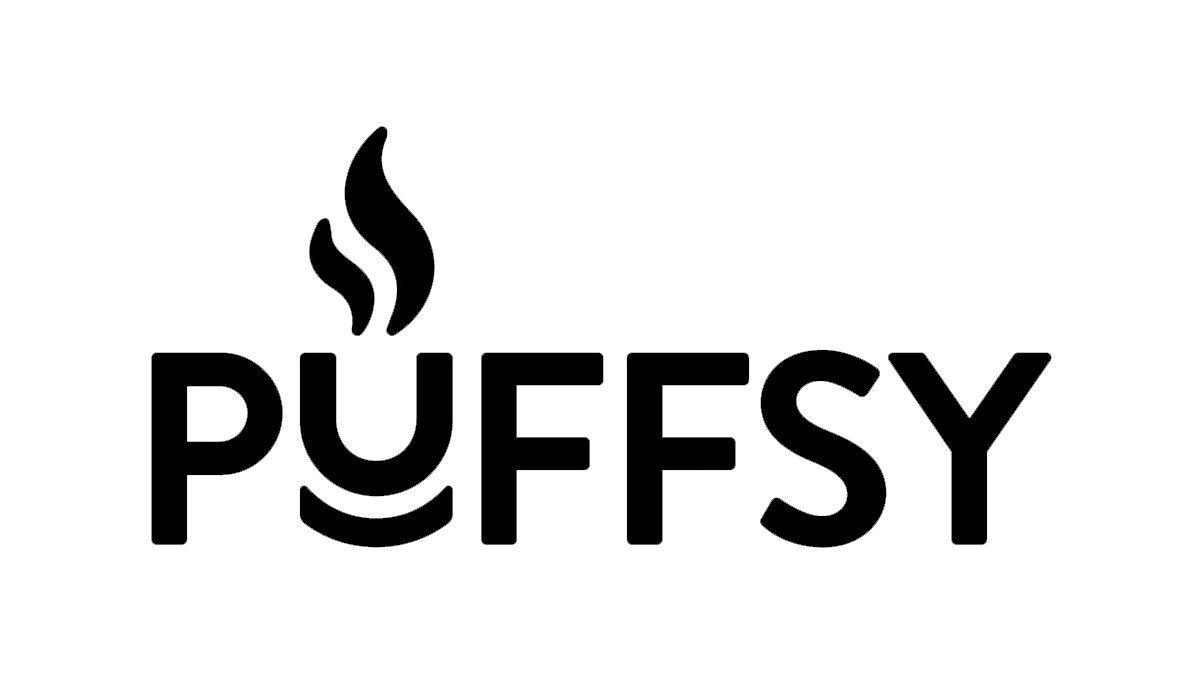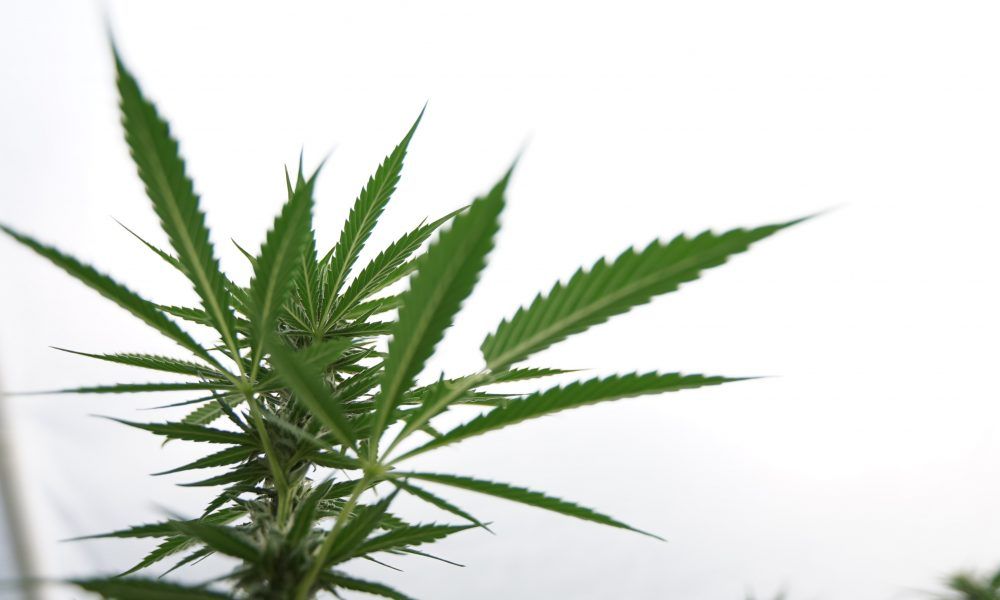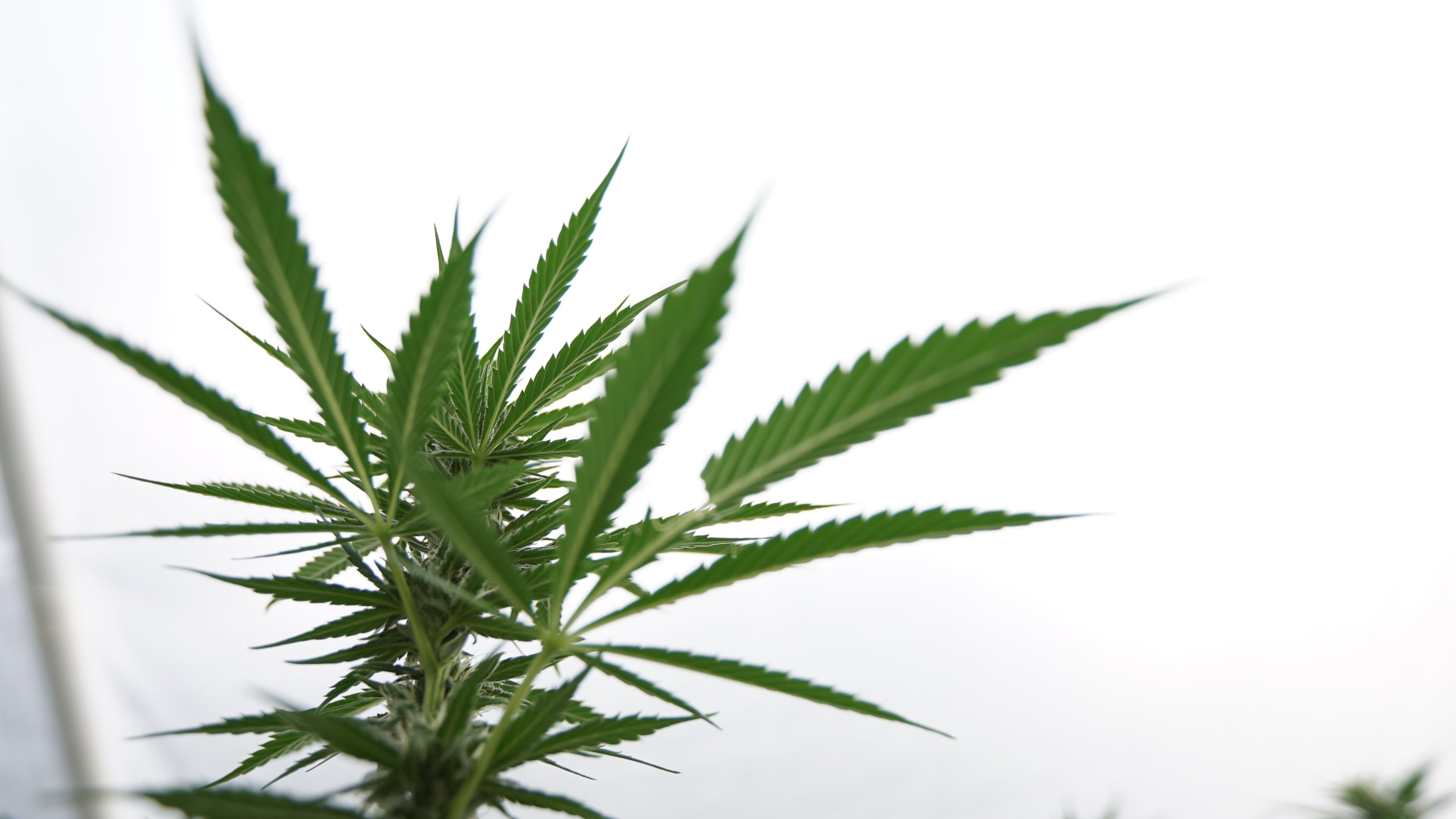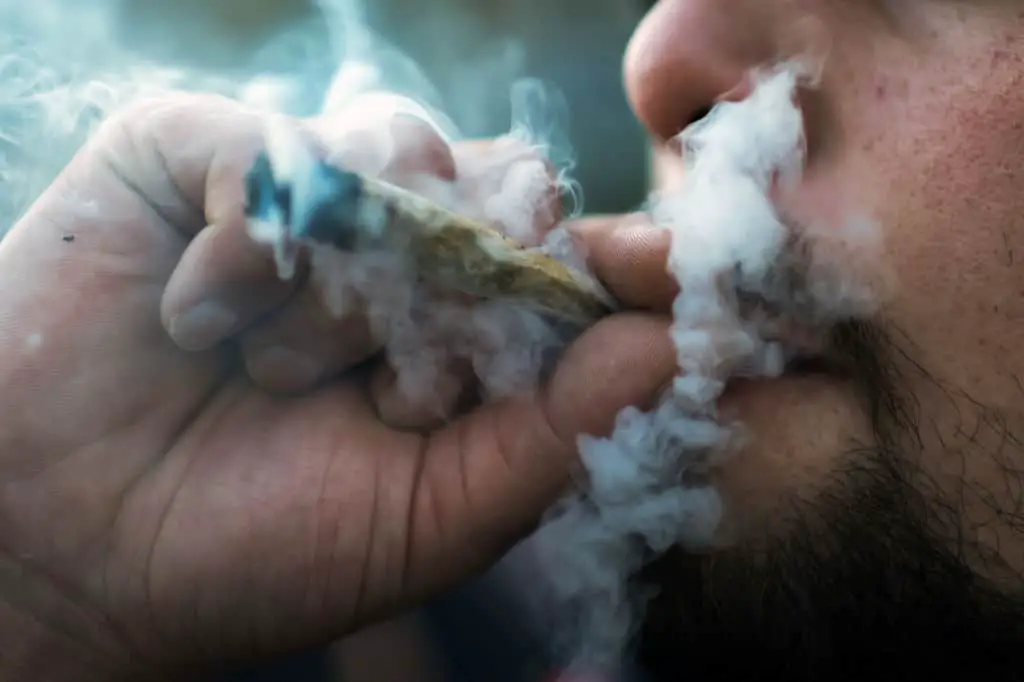Florida Gov. Ron DeSantis (R) has officially announced that he’s running for the 2024 Republican presidential nomination.
The candidate’s marijuana policy record is fairly mixed. While he opposes cannabis legalization, he supported several pieces of reform legislation during his time in Congress and has taken steps to build on Florida’s medical marijuana program as governor.
As a general theme, DeSantis seems to support the right of states to set their own cannabis policies, even if he personally draws the line at medical marijuana and finds the plant’s smell “putrid.”
DeSantis is one candidate in a growing pool of GOP presidential hopefuls whose views on cannabis policy vary significantly. His competitors for the Republican nomination include
former President Donald Trump,
U.S. Sen. Tim Scott (R-SC),
former Arkansas Gov. Asa Hutchinson (R) and
former South Carolina Gov. Nikki Haley (R)
Here’s where Republican presidential candidate Ron DeSantis stands on marijuana:
Legislation And Policy Actions
Congress (January 2013-September 2018)
As a member of the House, DeSantis had the opportunity to vote on several pieces of cannabis reform legislation—including proposals related to marijuana banking, state protections and industrial hemp.
In a plus for advocates, the then-congressman consistently voted in favor of spending bill amendments to protect
state medical and
recreational cannabis programs,
as well as hemp and
CBD laws, from federal interference in 2014 and 2015.
However, he voted
against a 2014 proposal to prohibit federal funds from being used to penalize banks that work with state-legal marijuana businesses. And he also
repeatedly opposed legislation to allow doctors at the U.S. Department of Veterans Affairs (VA) to recommend medical cannabis to patients.
In 2013, DeSantis
supported an amendment to “allow institutions of higher education to grow or cultivate industrial hemp for the purpose of agricultural or academic research.”
During the five years he spent in the House, DeSantis did not sponsor or cosponsor any marijuana or broader drug policy reform bills.
Florida governor (January 2019-present)
One of the most significant cannabis actions that DeSantis has taken as governor was his move to eliminate the ban on smokable marijuana products for medical cannabis patients, shortly after he took office in 2019.
He implored the legislature to quickly send him legislation to fulfill the will of voters who approved medical marijuana legalization by removing the smoking ban, otherwise he would drop an appeal of a lower court ruling that would maintain its determination about the unconstitutionality of the prohibition.
“Florida voters overwhelmingly approved medical marijuana in 2016, and I believe the subsequent legislation has been inadequate,” DeSantis
said. “Voters intended for medical marijuana to be dispensed in a way that would best benefit the patient, smoking included.
A couple months later, lawmakers did send him reform legislation that removed the smoking ban, and he made good on his pledge to drop the court case. He
thanked legislators for “working with me to ensure the will of the voters is upheld.”
Also in 2019, the governor
signed a bill establishing an industrial hemp program in the state and allowing the retail sale of hemp extracts containing up to 0.3 percent THC by dry weight.
Also that year, he
approved eight additional medical cannabis nurseries to cultivate marijuana for patients in the state.
DeSantis signed
legislation in 2022 that exempts certain medical cannabis-related records from public records disclosure requirements. That includes records related to a patient or caregiver’s personal identifying information and a doctor’s federal Drug Enforcement Administration (DEA) number and other identifying information.
He also signed a
bill in 2021 that deschedules federally approved CBD medication at the state level.
The governor’s budget
request for 2023 called for increasing funding for medical cannabis regulators. In 2021, he
urged lawmakers to pass a budget that includes $4 million for medical cannabis lab testing.
Under DeSantis’s administration, Florida’s Department of Health in 2022
issued an emergency rule that limits patients to 24,500 mg of non-smokable cannabis for a 70-day supply. It also sets dosage caps based on different forms of administration like edibles and tinctures. Further, patients can only purchase up to 2.5 ounces of smokable cannabis in a 35-day period.
Another emergency rule that was
implemented last year increases medical cannabis business licensing fees.
DeSantis has not yet
acted on calls from lawmakers and officials to facilitate cannabis clemency after President Joe Biden granted a mass marijuana pardon last year to people who’ve committed federal possession offenses.
He also faced criticism after
canceling a Clemency Board meeting last year at which former Agriculture Commissioner Nikki Fried (D) wanted members to consider approving mass marijuana pardons.
On The Campaign Trail
DeSantis has not publicly discussed marijuana policy issues since announcing his candidacy.
Previous Quotes And Social Media Posts
While DeSantis took steps to implement medical marijuana legalization per the will of voters, he personally opposes broader legalization, and he told WJHG in 2019 that the reform will not be enacted “while I’m governor.”
“I mean, look, when that is introduced with teenagers and young people, I think it has a really detrimental effect to their well-being and their maturity,” he
said, even as polls shows strong majority support for legalization.
“I am going to implement the will of the voters,” DeSantis said in 2019. “They passed medical marijuana overwhelmingly, and my view is is we have a process in Florida when that happens, then we shouldn’t play games with it. We should just simply implement it.”
“Now I’m not somebody that thinks having recreational marijuana for young people is good. I think that will make it more difficult for people to succeed,” he added. “And I think parents right now—it’s very difficult to raise children in the modern technological environment, you’ve got so many different distractions, to throw marijuana into it and make it more prevalent, I think would make it harder for parents. But on the medical side, we’ve got to respect the will of the voters.”
In 2022, DeSantis also said that he wants lawmakers to pass legislation that would increase the fees for medical cannabis business licenses,
saying “these are very valuable licenses,” and he’d “charge them an arm and a leg” because “everybody wants these licenses.”
Also in 2022, the governor complained that he thinks marijuana “smells so putrid,” adding that he believes jurisdictions that have moved to legalize cannabis “have ended up regretting it.”
“But I could not believe the pungent odor that you would see in some of these places and I don’t want to see that here,” he
said. “I want people to be able to breathe freely.”
He said that governors “can’t just do that,” referring to using executive authority to legalize marijuana. However, he said he personally doesn’t believe in incarcerating people over cannabis.
“I’ve never thought that somebody who was caught using it—we’re not going to use the prison system for that,” he
said. “But that’s different than kind of wanting it to be prevalent like you see in some of these other areas.”
In 2021, he
said that cannabis that’s available today contains “a lot of really bad things in it.”
“It’s not necessarily what you would’ve had 30 years ago when someone’s in college and they’re doing something,” he said. “You have some really, really bad stuff in there, so I think having the ability to identify that, I think, that’s safety, and quite frankly when you get into some of that stuff, it’s not medicinal at that point for sure.”
He likened Florida’s medical marijuana program as a “cartel” at one point in 2019, expressing skepticism about the law’s vertical integration requirement for licensees to control their products from seed to sale.
However, he later walked those comments back,
reiterating that there was “overwhelming support” for the medical cannabis initiative that voters approved in 2016 and saying “we’ve just got to enact a statute that is going to pass constitutional muster.”
“Some of the things that I criticized, the way they did the organization, as a free-market guy, that wasn’t necessarily something I liked,” he said. “You probably can do a lot of different approaches and it’d still be constitutional.”
Asked about a proposal to cap THC content in cannabis products in 2021, DeSantis
said that he had “not endorsed that,” and it’s “not something I’m pushing.”
DeSantis also believes that prohibition and criminalization should be enhanced for certain drugs like fentanyl.
“I think we’re now in a new era with this, the rise of fentanyl, and I think you have to be very, very tough when you’re talking about the supply of fentanyl,” he
said in May 2023. “I think that there’s opportunity to do more on interdiction, do more on holding the cartels accountable. But also we focus on the demand side.”
In February 2023, he promoted a video on the dangers of marijuana and other drugs that he said is “designed to pack a punch.”
Last year, a spokesperson for DeSantis
criticized the cannabis stock holdings of Fried, the then-agriculture commissioner who was running as a Democratic gubernatorial candidate, saying she was “pushing her own interests ahead of what’s best for the people of Florida.”
Fried routinely clashed with the governor, especially during her gubernatorial bid where she sought to clearly distinguish herself as the pro-cannabis candidate.
“Ron DeSantis doesn’t understand the cannabis space,”
Fried told Marijuana Moment last year. “He doesn’t understand that this is a healthcare issue, that this is criminal justice reform, economic opportunities. He doesn’t understand it, and instead wants to say that there is a pungent odor attached to it.”
The governor
declined to get involved with a lawsuit that the commissioner filed against the Justice Department, alleging that the federal ban preventing medical cannabis patients from buying firearms is unconstitutional.
A spokesperson also
said in 2021 that the governor didn’t support legalizing marijuana to help with economic recovery from the coronavirus pandemic.
A 2021 survey found that 40 percent of Florida voters think that
the governor cares about medical cannabis patients.
While DeSantis has expressed opposition to marijuana legalization, he hasn’t gone out of his way to personally undermine a campaign that’s actively seeking to place the issue before voters on the 2024 ballot. However, the state’s attorney general did ask the Supreme Court to
keep a reform initiative off the ballot in May 2023—
as she did with a prior legalization effort, as well.
Personal Experience With Marijuana
DeSantis doesn’t appear to have public discussed personally using marijuana, though he made abundantly clear that he’s no fan of the smell of cannabis, which he’s described as “putrid.”
Marijuana Under A DeSantis Presidency
DeSantis has a mixed record on cannabis issues, though he seems generally supportive of the right of states to set their own policies. However, it seems unlikely that he would proactively work to expand marijuana access if elected president.
His congressional votes opposing protections for banks that work with state-legal cannabis businesses and the ability of VA doctors to recommend medical marijuana come as a disappointment for advocates who have been working to secure those incremental reforms and who would like to see a champion for the issue in the Oval Office.
That said, it seems likely that DeSantis as president would take a mostly hands-off approach to cannabis policy reform efforts, as he’s largely done in his capacity as governor.




